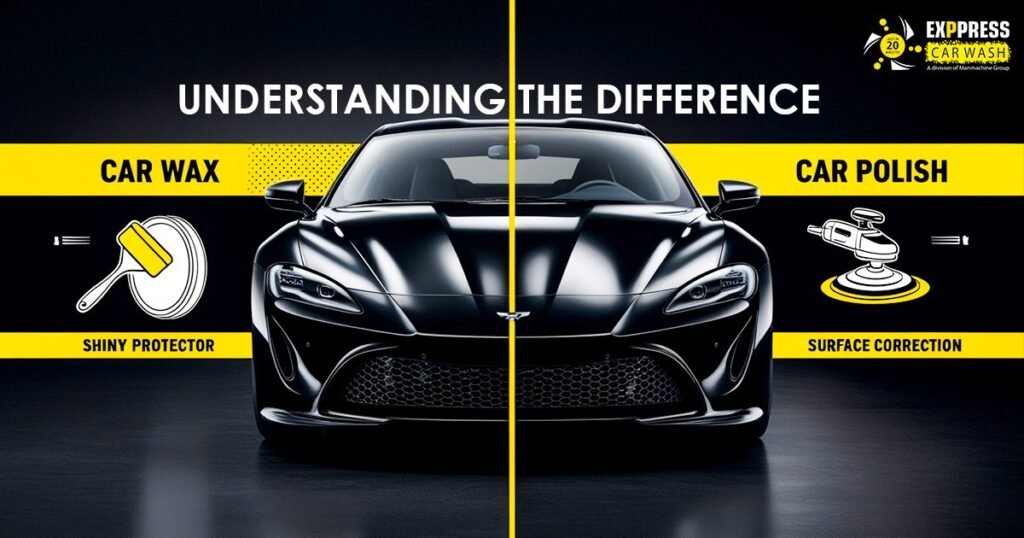How often should you wash your car

When it comes to maintaining the appearance and longevity of your beloved vehicle, regular car washing is a fundamental practice. The frequency of car washing, however, can vary depending on a multitude of factors. In this comprehensive blog, we’ll delve into the intricacies of car washing frequency and the various factors that influence it. Whether you’re a do-it-yourself (DIY) enthusiast or prefer professional car detailing services, we’ll explore the pros and cons of each approach. Additionally, we’ll provide essential tips for keeping your car spotless and environmentally friendly car washing practices that benefit both your vehicle and the planet.
A car detailing franchise allows entrepreneurs to enter the automotive service industry with the support of a proven brand. Franchisees benefit from expert training, access to high-quality products, and operational support, enabling them to offer premium services like paint correction and interior restoration. This business model reduces startup risks and helps build customer loyalty, making it an ideal choice for those passionate about vehicle care.
Before we dive in, it’s worth noting that Exppress Car Wash Car Cleaning Programs offer all you need to clean and extend the life of your car. From interior maintenance, such as washing and vacuuming, car detailing, and paint protection treatment, to exterior maintenance in shampooing, washing, buffing, and polishing, our car wash programs are the ideal way to keep your car looking exceptional. We are not just car wash providers. Our Car Cleaning Programs are your cost-effective solution for cleaning cars with biodegradable and eco-friendly chemicals that are lab-tested.
1. Introduction
1.1 Purpose of Car Washing
Car washing serves a dual purpose: aesthetic and functional. Firstly, it keeps your car looking its best, which is especially important if you take pride in your vehicle’s appearance. Secondly, and perhaps more importantly, regular washing helps protect your car’s exterior from various contaminants, including dirt, grime, bird droppings, and pollutants. By removing these substances promptly, you prevent them from causing long-term damage to your vehicle’s paint and finish.
1.2 Benefits of Regular Car Washing
The advantages of regular car washing go beyond aesthetics. Here are some key benefits –
- Preservation of Paint: Regular washing removes contaminants that can corrode and damage your car’s paint. This helps maintain the vehicle’s resale value.
- Safety: A clean car enhances visibility, reducing the risk of accidents, especially during adverse weather conditions.
- Preventing Rust: Washing your car removes salt and road debris, which can lead to rust formation on metal surfaces.
- Better Fuel Efficiency: A cleaner car is more aerodynamic, which can improve fuel efficiency.
1.3 Factors Affecting Car Washing Frequency
Several factors come into play when determining how often you should wash your car –
- Climate and Weather: Harsh weather conditions, such as heavy rain, snow, or intense sun exposure, can necessitate more frequent washes.
- Vehicle Usage: If you use your car daily for commuting or it’s regularly exposed to environmental factors, it will likely require more frequent cleaning.
- Driving Conditions: If you frequently drive on dusty or unpaved roads, your car will accumulate dirt and debris faster, requiring more frequent cleaning.
- Storage: Where you park your car matters. Vehicles stored in a garage are generally cleaner and may require less frequent washing compared to those parked outside.
- Type of Contaminants: Different contaminants, such as bird droppings, tree sap, or road salt, can be more corrosive and may require immediate attention.
2. How Often Should You Wash Your Car?
Determining the ideal frequency for washing your car can be a bit of an art, balancing the factors mentioned above. Here are some general guidelines to help you decide –
2.1 General Guidelines
For most car owners, washing your car every two weeks is a good rule of thumb. This frequency should help maintain your car’s appearance and protect it from the common contaminants it encounters. However, you may need to adjust this schedule based on the specific factors mentioned earlier.
2.2 Climate and Weather Considerations
If you live in an area with extreme weather conditions, your car may require more frequent cleaning. For example, in regions with heavy snowfall and road salt usage, washing your car every week during the winter months is advisable to prevent salt buildup, which can accelerate corrosion.
On the other side, if you live in a mild climate with infrequent rain, you might be able to stretch the time between washes to once a month or even longer.
2.3 Vehicle Usage and Driving Conditions
The more you drive your car and the harsher the driving conditions, the more frequently you should wash it. If your daily commute involves dusty roads or construction zones, you may find yourself washing your car more frequently than someone who primarily uses their vehicle for short city trips.
2.4 Types of Contaminants
Some contaminants are more aggressive than others. Bird droppings and tree sap, for example, can quickly damage your car’s finish, so it’s essential to remove them as soon as possible. Regularly inspect your vehicle for these types of contaminants and wash accordingly.
3. Signs Your Car Needs a Wash
Apart from adhering to a regular washing schedule, your car may provide visual cues indicating that it’s time for a bath. Here are some signs to watch for –
3.1 Visible Dirt and Grime
If your car’s surface is visibly dirty, with a layer of dust and grime, it’s time for a wash. Leaving dirt on your car for extended periods can lead to paint damage.
3.2 Bird Droppings and Tree Sap
As mentioned earlier, bird droppings and tree sap can be corrosive. If you notice these on your car, clean them off promptly to avoid permanent damage.
3.3 Water Spots and Stains
Water spots can form when mineral-rich water dries on your car’s surface. Over time, these spots can etch into the paint and become challenging to remove.
3.4 Salt and Road Debris
In winter months or after driving through areas where salt and road debris are prevalent, closely inspect your car for salt buildup and debris accumulation. These substances can accelerate corrosion if left unattended.
4. Steps to Properly Wash Your Car
When it’s time to wash your car, follow these steps to ensure a thorough and effective cleaning process:
4.1 Gather the Necessary Supplies
Collect the following items: a bucket, car wash shampoo, a hose or pressure washer, microfiber wash mitts or sponges, a soft brush for wheels, and drying towels.
4.2 Pre-Wash Inspection
Inspect your car for any of the signs mentioned above (dirt, contaminants, water spots) and address them as needed.
4.3 Washing the Exterior
Start by rinsing your car to remove loose dirt and debris. Then, use a soap solution and a wash mitt or sponge to clean the car from top to bottom, working in sections. Rinse thoroughly, ensuring all soap residue is removed.
4.4 Cleaning the Wheels and Tires
Use a separate bucket and brush to clean your car’s wheels and tires. These areas tend to accumulate more grime and brake dust.
4.5 Drying and Polishing
After washing, dry your car using microfiber towels to prevent water spots. Optionally, you can apply a wax or sealant to protect the paint and enhance its shine.
5. DIY vs. Professional Car Washing
Deciding whether to wash your car yourself or seek professional services depends on various factors. Here are some pros and cons of each approach –
5.1 Pros and Cons of DIY Car Washing
Pros:
- Cost-effective.
- Convenience of washing at your own pace.
- Opportunity for hands-on care and attention to detail.
Cons:
- Requires time and effort.
- May not have access to specialized equipment and products.
- Potential for improper technique, which can lead to scratches.
5.2 Benefits of Professional Car Detailing
Pros:
- Expertise and experience.
- Access to professional-grade equipment and products.
- Time-saving.
Cons:
- Costs more than DIY.
- May require scheduling and travel to the service location.
5.3 Choosing the Right Car Wash Service
If you opt for professional car washing, choose a reputable service that uses eco-friendly and biodegradable cleaning products, like Exppress Car Wash Car Cleaning Programs. These services not only protect your car but also contribute to a more sustainable environment.
6. Tips for Maintaining a Clean Car
Beyond r


